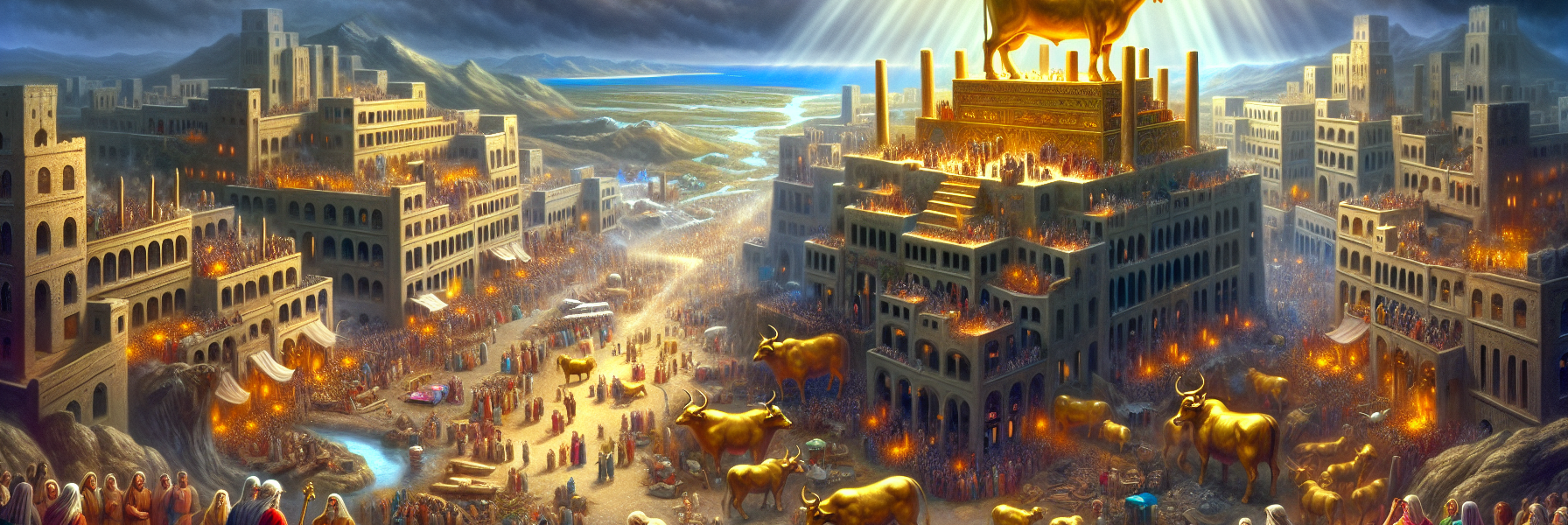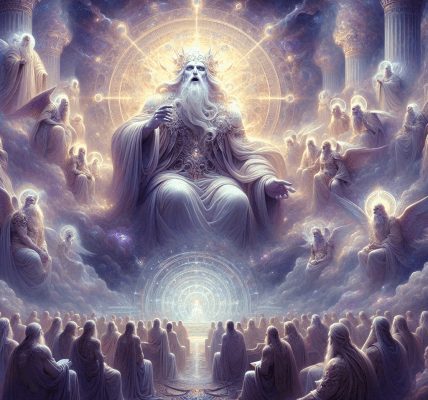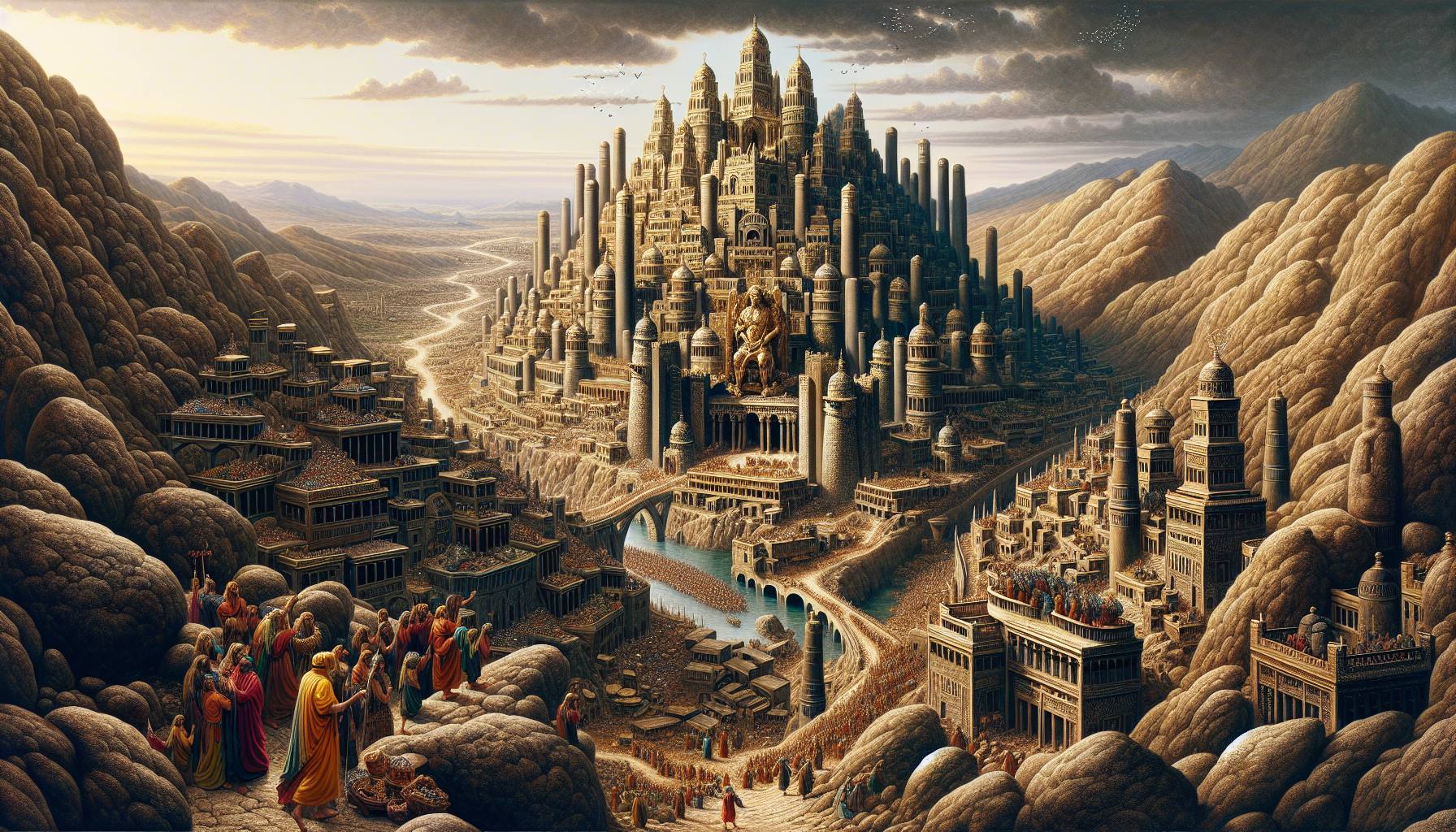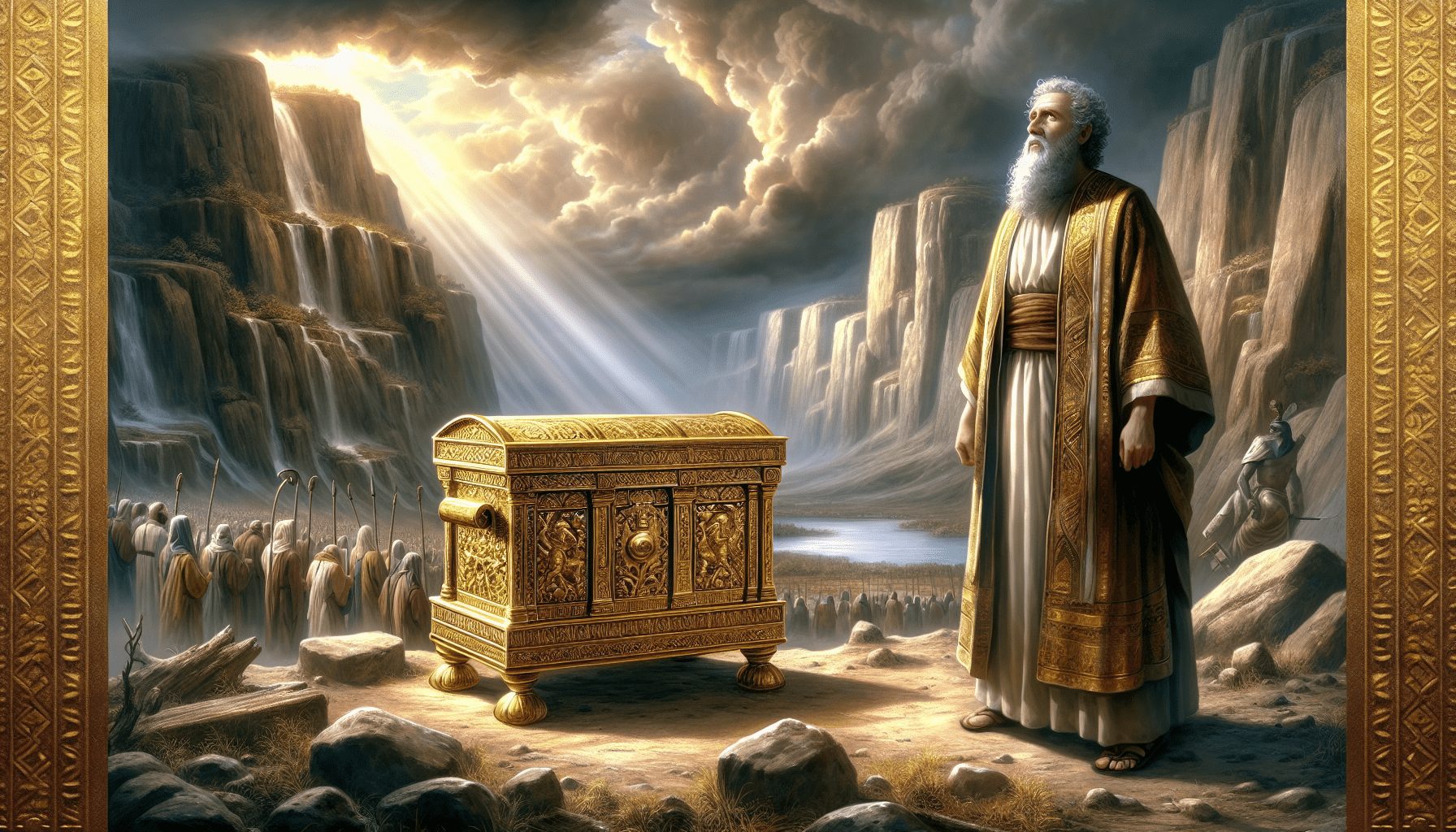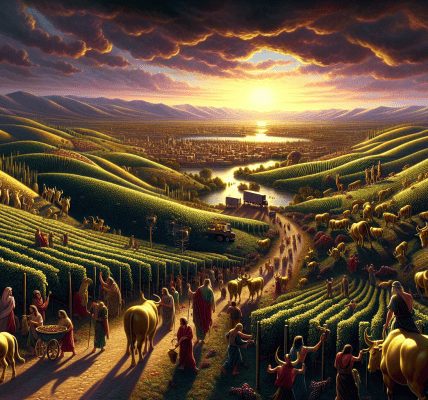**The Fall of Samaria: The End of Israel’s Rebellion**
The northern kingdom of Israel had long walked a treacherous path, turning away from the Lord their God who had delivered them from Egypt with mighty wonders. Generation after generation, the kings of Israel led the people deeper into idolatry, ignoring the warnings of the prophets and hardening their hearts against the Lord’s commandments.
In the days of Hoshea, son of Elah, the final judgment loomed over the land. He was the last king of Israel, a man who ruled in Samaria but did not rule in righteousness. Though he was not as wicked as his predecessors, he still allowed the high places to stand, where the people burned incense to golden calves and bowed before foreign gods. The Lord had sent prophets—Elijah, Elisha, and others—crying out, *”Turn from your evil ways! Keep my commandments and statutes!”* But the people would not listen.
Hoshea, foolishly believing he could outmaneuver the judgment of God, sought the protection of Egypt rather than the protection of the Almighty. He rebelled against Shalmaneser, king of Assyria, to whom he had once paid tribute. When the Assyrian king discovered Hoshea’s treachery, his wrath was swift. He invaded the land, laying siege to the great city of Samaria. For three long years, the people endured hunger and despair as the Assyrian forces pressed in, tightening their grip like a serpent coiling around its prey.
Finally, in the ninth year of Hoshea’s reign, the city fell. The mighty walls of Samaria crumbled before the onslaught, and the Assyrians poured in like a flood. They seized the king, bound him in chains, and cast him into a dark prison, where he would never see the light of freedom again. The people of Israel—men, women, and children—were torn from their homes, their vineyards, their olive groves, and marched into exile. The Assyrians scattered them like chaff in the wind, resettling them in distant lands: Halah, Gozan by the Habor River, and the cities of the Medes.
The land of Israel, once flowing with milk and honey, now lay desolate. The Lord had warned them through His servants the prophets, but they had mocked the messengers of God and despised His words. They had worshiped the Baals, set up sacred pillars to Asherah, and even sacrificed their own children in the fire to Molech. They consulted omens and divination, chasing after the empty gods of the nations around them.
But the Lord, in His righteous anger, did not leave the land completely empty. He brought foreigners from Babylon, Cuthah, Avva, Hamath, and Sepharvaim, settling them in the cities of Samaria. These new inhabitants knew nothing of the God of Israel, and so they brought their own idols with them. Yet the land itself rejected them, for lions prowled among the settlers, striking them down. The king of Assyria, hearing of this, sent back one of the exiled priests of Israel to teach the newcomers the ways of the God of the land.
The priest settled in Bethel and instructed them, saying, *”You must fear the Lord, for He is the God who rules this land.”* But the people only added the worship of Yahweh to their pantheon of gods. They continued to serve their own idols, molding them from gold and silver, bowing before them in the high places.
And so, the words of the Lord were fulfilled. Israel had been torn from their inheritance because of their sin. They had forsaken the covenant, spurned the law, and followed the ways of the nations. Now, they were strangers in a foreign land, while their homes were given to others who did not know the Lord.
Yet even in judgment, the Lord’s mercy lingered. For though Israel was cast out, He would not forget His promises. A remnant would remain, and in the fullness of time, a greater King would come—one who would call His people back to Himself, not just from exile in Assyria, but from the bondage of sin itself.
But for now, the land lay in silence, a solemn witness to the cost of rebellion against the Holy One of Israel.
